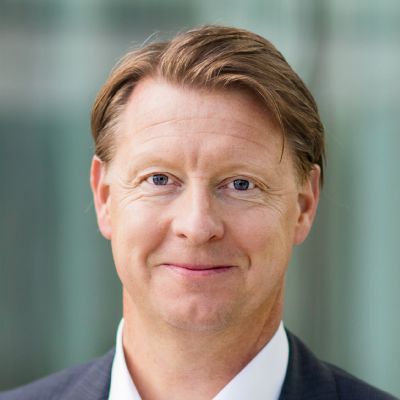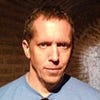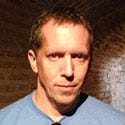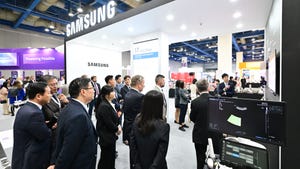CEO Chat With Hans Vestberg, Ericsson
Steve Saunders met up with Ericsson CEO Hans Vestberg, who talked about using next-generation comms tech as a force for good, as well as a foundation for good business.

I was pleasantly surprised when Ericsson recently agreed to let me interview its CEO, Hans Vestberg. Traditionally, mega-companies like Ericsson (or Cisco) have kept me and Light Reading away (far, far away) from their exalted leaders, but we've had significant success this year in connecting with, well, just about everyone.
There are a couple of reasons for that: one is that LR (and its founder) have grown up a bit in the last few years; but, also, what we cover (next-gen comms) has grown in importance - not just to the industry, but to the future of the world.
And that was very much the theme of my chat with Hans, who was recently named to the United Nations Foundation's Board of Directors, with a remit to support the UN in helping improve health, increase prosperity, empower women (and girls), and address climate change.
Figure 1:  Ericsson's Hans Vestberg: An advocate of Technology for Good
Ericsson's Hans Vestberg: An advocate of Technology for Good
It was refreshing, and inspirational, to hear the CEO of one of the world's leading communications companies talking so eloquently about using next-generation comms tech as an enabler of Quality of Life (QoL) for the global, networked society -- not just Quality of Service (QoS) for mobile subscribers.
The communications industry, and the world, needs more leaders like Hans.
Of course, it wouldn't be a Light Reading interview if I hadn't also taken the opportunity to ask him about some knotty business and technology issues surrounding things like virtualization, IoT and the margin on Ericsson's professional services business.
I hope you enjoy this interview as much as I enjoyed conducting it. And kudos to Ericsson's marketing folk for opening the door…
Click through to see what Hans said about Technology for Good, the roadmap for virtualization and much more.
Page 2: The Networked Society
Page 3: Technology for Good
Page 4: IoT, and other verticals
Page 5: Virtualization and transformation
— Stephen Saunders, Founder & CEO, Light Reading
Next page: The Networked Society
The Networked Society
Steve Saunders: Hey, Hans.
Hans Vestberg: How are you doing?
SS: Very good. It's nice to meet you and I wanted to say congratulations: You've been named by the UN Foundation Board as a new member. It would be helpful for me if you could explain what that involves.
HV: Thank you very much. It's an important thing. I know you have visited us here [at Ericsson HQ in Kista] and I think you know about our Networked Society vision which we believe will impact people, business and society.
We have already seen the first phase of this Networked Society, with its impact on consumers, on people with smartphones. Now industries are hooking up to it; 5G is going industrial, with wireless for healthcare, for autonomous cars, and much more.
But then we have the society piece, which is where I've been very active in the UN the last five years, for the simple reason that when the UN comes together, they want to define targets for the future.
I want the UN to understand that the biggest and most transformative enabler is held in the hands of the world's population: the mobile handset. By 2020, 90% of the population above six years old will have a handset. At the same time, 97% of the population will have mobile coverage. There's no other technology that you could give to a government that can actually help meet targets for digital healthcare, digital education, et cetera.
So I've already been part of the Broadband Commission, and I've been heading up a couple of climate working groups. Now, of course, being invited to be in the UN Foundation, with its focus purely on supporting the UN in their work with digital challenges, and funding them, gives me a great opportunity for me to continue the work that I've done with the sustainable development goals.
This is hugely important from Ericsson’s point of view. We think ICT is will be incredibly important over the next 15 or 20 years in combatting climate change, supporting healthcare, reducing poverty and enabling education. This technology that we are working with every day has such a positive impact in the world and we need to make sure that all the stakeholders understand that, and that we collaborate around that.
SS: Can you explain to me a little bit about how you see connectivity being a key enabler of sustainable development goals?
HV: Sure. There are actually 17 goals that are about to be approved at the UN, all of which benefit from the enabling power of mobility, broadband and cloud.
Digital education is one very important example where we clearly see that we can bring education to children around the world in a way that's simpler, much cheaper, and much more efficient.
Healthcare is another. In some parts of the developing world you have one doctor for 10,000 people. So providing a way to get provide monitoring of patients, to get simple diagnostics, that is of course another enabler. I can go on and on, but what all 17 goals have in common is that governments work together with the private sector in a different way. Governments won't get there by just mandating "we must have a certain broadband penetration." They actually need a target for how that broadband penetration can transform society, via healthcare, via education, via smart cities.
SS: That's a really interesting point, because it mirrors what's happening with CSPs around the world. Today they're not just focused on infrastructure, and capacity, and reliability, they're starting to think about the application of that network -- about how it's used. It seems to me that what you are describing is a not-for-profit analog to that sea change in the way that service providers view communications infrastructure, isn't it? How can we use that network to do good?
HV: You're absolutely right, Steve. And what we need to realize, and I am always preaching this, is that we're just at the beginning. In the next five years the explosion in the number of mobile broadband users will be enormous. Remember that the majority of the people that have Internet access today have gone through a progression. They might have started with a black-and-white TV, then a color TV, to a PC, to a laptop, to a feature phone, to a smartphone or a pad.
But the majority of the next three billion people that will come online in the next five years will actually start with a smart device. They will have a totally different way of thinking about they can create business, how they can be included in our society. Suddenly, you can compete from any country in the world because the barriers between countries just disappears when this happens.
SS: The trend in communications technology is for faster, cheaper, ubiquitous access. Do you believe that we will ever, as a world, reach a point where the Networked Society connects everybody unilaterally rather than favoring the 1%, or the 3%, or the 10%? When do you think that might happen?
HV: It's a great question because Ericsson is one of the few companies in the world that can predict that. We're in 180 countries; we see all the technologies being deployed; we know the device price; we know the GDP in every country, and how it will develop. So we can extrapolate all of that data. And what we see is that by 2020 we're going to have over 8 billion mobile broadband subscriptions. That translates to double the amount of people having access to Internet in the next five years, and it took us 25 years to get where we are today, so it's going to be an exponential increase in the number of people with access to the Internet.
The networks combine 2G, 3G, 4G, and include unlicensed spectrum. And it makes no difference if you're in Nigeria or you're in Sweden, or you're in the US. The same technology will be there.
Next page: Technology for Good
Technology for Good
SS: How does your work as a UN Foundation board member tie in to what you're doing at Ericsson with your own Technology for Good programs?
HV: For us, it's not like we're doing something separate. Technology for Good is embedded in our company, in our radio strategy, in our services strategy, in the strategy of our support solutions. It's ingrained in the structure to the company. And our company has 117,000 employees, and they're extremely proud of being part of the vision of Networked Society and the fact that we are using technology to accomplish good. To compete for the best talent in the world, you need to have that.
SS: I didn’t start out that way but I’m an American citizen now and, having lived here for 25 years, I can tell you that most Americans don't care about anything much except money and winning. Obviously, that's not the case with Ericsson, because you're doing all of this fantastic not-for-profit work. Is it in the nature of Swedish people to do good things?
HV: I'm not sure. I want to earn money as well. When I took over the company with my leadership team, it was 139 years old. So we have a huge responsibility to see that this company continues. If we were just maximizing profits we wouldn't be around for ten years. I wouldn't invest in 5G, for example.
So I have four stakeholders which I keep my eyes on: Shareholders is one, customers another, employees a third, and the fourth, which I think is fairly unique, is society. So we’re talking about Technology for Good, but we also need to manage risk. We're in 180 countries. There are challenges with sourcing, corruption in some of these countries, and we need to manage that as well. In order to be a sustainable long-term company, you need to manage all these four.
For me, these things are complementary. If I simply go for profit all the time, if I don't think about my customer, my employees and society, I will not make my money. It's not that I don't want to make money, I want to make just as much money as someone from any nationality; it's just that we have a holistic view of how to achieve long-term sustainable success.
SS: I think that's really a great vision, but do you find that it's held universally by your board and shareholders? Do you ever have to argue hard to do the right thing?
HV: As a CEO, it’s a very good idea to listen, but I think I've listened enough, and I’d say my board is very much aligned with what we're doing. And I have had very little push-back from shareholders saying that we shouldn't try to think about what is sustainable for the company or what's good for society. Very little.
SS: It helps when you have fantastic financial results, as you do.
HV: You're absolutely right. You get the freedom to do all these things if you have decent performance as well.
Next page: IoT, and other verticals
IoT, and other verticals
SS: Ericsson is launching some exciting products this year; particular the HDS 8000, but you had another product which came out this year which I'm only now hearing about, called the Maritime ICT Cloud. I think it's an amazingly important and significant product because it's a way to monetize IoT in a specific industry vertical, which I think is essential to IOT being successful. What was the inspiration for Maritime ICT Cloud?
HV: I think the inspiration comes from who you collaborate with and who you work with. That's how you come up with this type of solution. In this case we worked with one of the most lauded shipping companies in the world, Maersk. We provided connectivity for them, and we looked into how they can improve efficiency for fuel usage, tracking and all of those things.
And generally, when Ericsson is working with these type of world leaders, they come with a detailed knowledge about their industry, and we come with the expertize in mobility, broadband and cloud services, and at the intersection of those two knowledge bases you tend to find this type of innovation. It’s a very different situation from five or ten years ago when innovation came from just sitting with a carrier. Nowadays we need to think much broader, beyond the consumer.
SS: Are there other industry verticals which you think are good prospects for IOT?
HV: We saw the opportunity in the energy industry early with smart cities. Public safety is another. They need more than a radio handset to shout into; if you add in video, they can take much better decisions. Another early area is TV and media, which we have been investing in heavily. Healthcare will also be very important, but it's a very fragmented market at the moment… it's hard to do something there from our end right now.
Next page: Virtualization and transformation
Virtualization and transformation
SS: I couldn't let you do an interview today without asking you at least one question about virtualization and NFV. Do you think NFV can happen and be successful before the technology revolution that will come with 5G, or do we have to wait until 5G is here in 2020 before NFV is really something that takes off with CSPs?
HV: I think it's an excellent question and it requires a thoughtful answer. We started our virtualization strategy in 2010 with a component-based architecture. This year, all products of Ericsson can be virtualized. So I think we have been ahead of the game, because we want really to give our customers choices. And those customers are virtualizing their networks in different ways, depending on their nature. They need virtualized services in order to be both efficient but also to offer new services. In five years' time it's going to be imperative that they need it, but for the next four years it's going to be a gradual process. Some are doing it early; some haven't even started.
SS: What about global services? Light Reading thinks it will be very important for CSPs to work with providers that have an extensive system integration and global services portfolio. You have one of the largest and most expansive systems integrator divisions in the world. The margin on that business seems quite low but it accounts for a very large, and growing, amount of your revenue. Is there a way to grow that revenue and increase the profitability for Ericsson?
HV: Well, there are two parts to the business. You have the network rollout business, which is tightly attached to mobile infrastructure. That is intrinsically a low-margin business; a slight loss today, even. It should be possible to make that at least break even.
Then there's the professional services, which is roughly two-thirds of the total global services. That business has undergone an enormous transformation. Five years ago it was basically product services -- technical support, education. Today that has totally changed, and we have far more managed services and system integration, and far fewer product-related services.
Product-related services have four times higher margin than multivendor systems integration, so the fact that margins have been flat on professional services during that transformation, at 12 – 14%, is pretty good. We could improve margins further by not growing managed services, but that's not our plan, because our customers need them.
SS: I was surprised to see that the CTO of Nokia was attacking Ericsson's technology credibility the other day. Obviously the important question here is: do Finns and Swedes not get on with each other?
HV: I don't think it's that. I get questions about competition each and every day. I usually don't comment on competitor strategies. That's not our game. I'm very much focused on executing on our strategy, leading in basically everything we're doing. But we're humble enough to understand that the competition is very good as well.
SS:: Good answer. Aren't you supposed to be on holiday now?
HV: I'm not sure that the CEO that has business in 180 countries and 120,000 employees is ever on vacation. We are so excited over being able to lead this company, all of us, so we're running full speed all the time. Of course we also need some time off now and then. I take some weeks here and there in order to get my energy back up, but I get most of my energy from running this company together with my friends and colleagues and co-workers at Ericsson.
SS: That was all the questions I had today. Hans, I want to thank you; I just reacquired Light Reading at the beginning of last year, and I've had a terrific time working with Ulf [Ewaldsson, CTO of Ericsson] and his team. It's been fascinating, and incredibly helpful, so I really appreciate it.
HV: The relationship with Light Reading is also extremely important for Ericsson. I hope that you and I can meet some day, somewhere in the world, and have a longer conversation about what's happening.
SS: I'd enjoy that. Thanks again.
HV: Take care. Bye-bye.
Read more about:
EuropeAbout the Author(s)
You May Also Like












